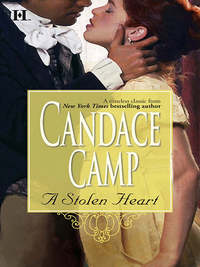
Полная версия
Indiscreet
“There are times when I do not,” Benedict retorted bluntly. “And don’t put on that innocent air with me. I think that you would do anything necessary to find out what has happened to our agents and to save our ‘little project’ from being destroyed.”
“Wouldn’t you?” Jermyn raised a cool eyebrow. “My dear friend, I have worked long and hard to establish those men in France, and their services are invaluable to our government. Knowledge is priceless. It is what wins wars. Right now, we are utterly without knowledge.”
During the past four years, while Benedict was with the army on the Peninsula, fighting Napoléon’s armies directly, Jermyn had been in the Home Office, battling the French on a secret front. He had established a network of spies within France, calling the project Gideon and planting men, both Englishmen and French émigrés, inside the other country, whence they kept him supplied with news of the enemy. Rumors, stolen documents, the mood of the people, financial and political conditions, news of troop movements and morale, of supplies and problems—all were funneled out of France and into Jermyn’s office. For the past few months, since Benedict was forced to leave the army because of the injuries he had suffered in battle, he had joined his friend in his dark, desperate conflict.
Benedict knew how invaluable their work was, and, though he chafed at being relegated to a passive, waiting role in the government offices, he had given it his usual full devotion. And, like Jermyn, he knew just how catastrophic was the danger that was now threatening the spy ring—and, by implication, England itself, for the destruction of the Gideon network in France would create a huge hole in the whole war effort. The army, the government, would once again be without the knowledge it so desperately needed. Worse, there was always the possibility that the French might be sending in spies or saboteurs of their own through the very channels that Jermyn, through the Gideon network, had created.
“You are right,” Jermyn went on implacably. “I would do almost anything to keep that network of agents in France intact and unknown, to keep them from being hunted down and killed. Those are my men out there, Benedict, and it is my responsibility to keep them safe, just as it was your responsibility to bring your comrades back to safety. You didn’t let your wounds stop you, and I am afraid I cannot allow the prospect of some minimal danger to one woman stop me.”
He stopped and sighed. “I know that sounds callous. But what would you have us do? Lose this chance? Benedict, this is a golden opportunity. You can get inside Chevington Park. You will be accepted as an insider, one of the family. They will talk to you.”
“Yes, but it hardly seems likely that anyone in the Earl’s family is connected with the smuggling.”
When Jermyn set up the spy ring, smuggling had seemed the logical way of bringing messages and people into and out of England. With trade with France barred legally, only the illegal trade in French brandy and tobacco from the United States offered an opportunity for passage in and out of France. The smugglers had been operating for centuries quite successfully, and it required only paying the smugglers to get them to bring in a few letters or human cargo, as well. Richard Winslow, one of Jermyn’s friends and coworkers, had been their connection to the smugglers who operated in the area of Edgecombe. Unfortunately, to keep news of the operation from getting out of the notoriously leaky Home Office, only Winslow had known who his contact among the smugglers was.
The flaw in this scheme had become obvious a few weeks ago, however, when Winslow had died, apparently by his own hand, taking the secret of the smugglers to his grave. Both Jermyn and Benedict had been astonished that the serious, dedicated Winslow had killed himself, thereby endangering the spy ring, but they had not been suspicious until a week later, when the messenger they were awaiting from France did not arrive. They did not know whom to contact in Edgecombe, so they could only wait and worry as weeks passed without word from him.
Growing ever more suspicious, they began to look into Winslow’s death again. On closer inspection, they had realized that the suicide note did not exactly match Winslow’s handwriting, though it had been a very good copy. In the face of that, certain inconsistencies about his death that they had dismissed before now loomed large, and they became convinced that Winslow had been murdered, rather than being the victim of his own melancholy.
They continued to receive no messages from France, and they became even more convinced that their messengers were being killed, as Winslow had been. There was a traitor working against the network. Their fears were further heightened by a message from a known French spy that had been intercepted on its way to France. One terse line in the message had conveyed the fact that “we have a man in place in Edgecombe, and we will pick them off one by one.” It was clear that Gideon was in danger.
Unfortunately, they were still in the dark about the identity of the French agent at work in Edgecombe. The Frenchman who had sent the messages fled before he could be arrested, and his whereabouts were unknown. Moreover, they did not even know how to get to their friend among the smugglers to warn him about the danger. Only Winslow had sent the messages or directed the agents where to go. Only Winslow knew the identity of the man with whom he had dealt.
It was for this reason that they had come to Edgecombe over a week ago: to gather information about the smugglers and hopefully discover not only whom they should contact, but also what had happened to their agent and who was trying to harm Gideon. Unfortunately, in the time they had been here, they had learned almost nothing. Jermyn had tried mingling with the villagers, but none of the locals would talk to him about the smugglers. However law-abiding the citizens were, the smugglers were, after all, their own, and they protected their own. Benedict, on the other hand, had kept a low profile, wandering the heath and shore for signs of the smugglers or their contraband, investigating caves and trails and spending every evening for a week lying in wait for them in the likeliest-looking places. He had discovered as little as Jermyn.
“No one in Chevington’s family is likely to be one of the smugglers, that’s true,” Sedgewick admitted now. “However, you know we have discussed the possibility that Winslow’s killer was someone he was at least acquainted with, another ‘gentleman,’ perhaps.”
Their suspicions had been aroused by the fact that the murder took place in Winslow’s study late at night. The doors and windows of the house had been locked, none of them forced, and there had been no sign of a struggle. The servants had heard nothing except the gunshot and had admitted no one into the house that evening. Lord Winslow, in fact, had not even been at home until late in the evening, and no one was sure when he had come in, as he had told the servants not to wait up for him.
Sedgewick and Benedict surmised that the killer must have entered the house with Winslow or been admitted by him. It would seem likely, therefore, that the killer was someone he knew—or at least someone who had appeared sufficiently like a gentleman that Winslow had had no suspicions about letting him into his house.
“Yes, I know.” Benedict sighed. They had been over this ground many times since the man’s death. “Still—the Earl of Chevington?”
“It could be someone connected with the family, or someone who would come into contact with them. The social life of Edgecombe must revolve around the Earl. Anyone with any pretensions of gentility must call on them. Besides, if you are engaged to the Earl’s granddaughter, you will have entrée to everyone, not just the gentry and the family. The servants will talk to you, the villagers. You’re bound to be able to find out something about the smugglers.”
“You can’t be sure of that.” Benedict sighed. “They are the most closemouthed group I have ever met.”
“Not once they have accepted you as one of their own,” Sedgewick pointed out. “The Earl is regarded with love and respect by the people around here. I’ve found that much out. They have a tremendous loyalty to the Chevingtons. Why, I’d lay you odds that that young woman in there could find out in a few well-chosen questions what you and I have been idling here trying to discover for over a week.” At his companion’s dark look, he waved a quieting hand. “No, no, don’t worry, I am not suggesting that you enlist her help in asking the questions. I am merely saying that if you are known to be her fiancé, they will answer you, too—not as readily, perhaps, but far more quickly and easily than they have answered me so far.”
“That would not be difficult, since you and I have learned virtually nothing. Otherwise I wouldn’t have been out on that damnable heath again this evening. And I would have found them tonight, too,” he burst out irritably, “if it hadn’t been for that blasted girl! They were right there. They fired at me.”
“Trust me. Once you reflect on it calmly, you will see that running into Miss Ferrand was a godsend.”
His companion snorted derisively. “This is absurd. This time your scheme simply will not work.”
“Why not? At the moment, you are the only obstacle.”
“Well, to begin with, what if one of these people recognizes me? I mean, we do move in the same circles. I might have seen them at parties. What if one of them says, ‘Hallo, Rawdon,’ when my name is supposed to be Mr. Emerson, or whatever it was she made up.”
“Lassiter, I believe,” Sedgewick supplied. “It’s very unlikely. You have been out of the country for four years, and you weren’t Lord Rawdon when you left, you were still plain Benedict Wincross, with another heir between you and the title. You have been back only a few months, and you know as well as I do that you never go to parties. Besides, these people have been rusticating down here for the past few months. Miss Ferrand said so. They would not have been anywhere in London to see you. And even if someone did realize who you were, you could always make up some faradiddle about a secret engagement. Secret engagements are always handy things.”
“Particularly for those who don’t have to participate in them,” Benedict said sourly. “Since having the whole scheme blown sky-high by someone recognizing me doesn’t bother you, what about the fact that we are placing our trust in this chit about whom we know nothing? There isn’t a chance in hell that she won’t somehow give the game away.”
“She has every reason not to. She wants her family to believe that you are her fiancé as much as—or more than—we do. She will do her utmost to maintain that illusion.”
Benedict grimaced. “Even with the best goodwill, she can still make a mistake.”
“She seems a bright enough girl. Not lacking in spunk, either. I can’t picture her giving it away through fear or timidity.”
“No.” Even Benedict had to give a reluctant grin. “There’s little likelihood of that. Still, I doubt she is accustomed to such deception.”
“What?” His friend looked at him with comic dismay. “Is this Benedict Wincross speaking? The man who swore to me four years ago that all women are steeped in treachery?”
Benedict had the grace to flush. “They are taught to deceive from the cradle, and you know it. I warrant that even Bettina, the best of women, has led you a merry dance from time to time.”
Sedgewick chuckled, seeming not at all disturbed by this description of his wife. “Indeed, that she has. Thing is—I rather enjoy following your sister’s steps, you see.”
“It is the grand scale of the deception that I doubt she could maintain. False smiles and a few sweet lies are a far cry from maintaining a fiction for days before all one’s relatives. Moreover, this woman seems more—direct, shall we say?—than most.”
“Perhaps. But, still, I think she is clever—and saving oneself from the tooth-and-claw of a vicious aunt is no mean motivation.”
“Perhaps she is capable of such pretense, but how the devil am I supposed to act moonstruck about a woman whose every word seems designed to raise my hackles? I have not been with that woman for two minutes running without wanting to wring her neck.”
“Just look at her as you did at Annabeth,” Jermyn retorted unfeelingly. “For God’s sake, Benedict, this playacting is vital to the existence of our network. You cannot let that whole group of men, all our efforts, be destroyed just because you don’t like a woman.”
“Dammit, this isn’t a mere whim of mine! This trumped-up story will not work!”
“What if it does not? We know nothing now, and our entire network is in grave danger of being destroyed. Not to mention the fact that we obviously have a very clever enemy among us who could be bringing in more enemies through the very channel we established. How will it be any worse if you are discovered to be an impostor? How much less could we know? How much more could our network be destroyed? How much more danger could our country be in?”
Benedict gazed back at him for a long moment, caught by his argument. Finally he said in a truculent voice, “I don’t want to waste my time when I could be out looking for the smugglers.”
“We both know this way of looking for them will be faster and easier.” Sedgewick paused, then raised an eyebrow. “Or is it that I’m wrong— Perhaps you are dragging your heels not because you dislike the woman…but because you like her too much? Is that why she stirs you up so much? Is that why you are so determined to avoid being around her? Because she makes you feel things you thought were long dead?”
“Don’t be an idiot,” Benedict said roughly, tossing his cigar down on the driveway and grinding it out savagely. “Bloody hell! All right, I will do it. But, by God, Jermyn, you better be right about this. Otherwise, Gideon will be lost.”
He turned without another word and strode back into the inn.
* * *
STILL FEELING CHEERED by the warm drink within her and by Mr. Sedgewick’s sympathy, Camilla turned to the almost Herculean task of setting her appearance to rights. She could well imagine what both her aunts would say if they saw her looking like this.
As soon as the maid brought in a pitcher of water and a basin, as well as rags and towels, she stripped off her filthy clothes and scrubbed away at the mud with a wet rag. When she had managed to rid herself of nearly all of the dirt, she put on clean undergarments from her trunk. As she dressed, she thought about the inevitable gossiping the servants of the inn would indulge in. No doubt by tomorrow it would be all over the village that Lady Camilla had arrived here last night looking like a hoyden, covered with mud and with a strange man in tow.
It would really be better, she realized, if that loathsome Benedict person did agree to pretend to be her fiancé. At least it would explain his presence in her carriage. If she told the real story, Aunt Lydia would go into near hysterics about the danger she had been exposed to, and Aunt Beryl would find it a golden opportunity to lecture her on her foolish, heedless ways and the danger into which they could lead her. It was enough to make her hope that Mr. Sedgewick would be able to talk Benedict into it.
Of course, it would be awful having to pretend for several days that she was in love with him and wanted to marry him—indeed, it was daunting to think of even having to be in his presence that long. She was quite sure they would have difficulty not getting into a roaring argument every few minutes. Mr. Benedict was, after all, the most irritating man she had ever met.
No one would expect them to bill and coo, of course; that was not the sort of behavior encouraged by people of her station in life. Even engaged couples were usually chaperoned and stayed a chaste distance from each other. There was none of the public hand-holding or kisses such as Camilla had seen the parlor maid, Lizzie, and the butcher’s son engage in. No, if there were a kiss or embrace exchanged, it was usually done in secret.
However, they would be expected to be together a lot of the time, and it would probably be thought odd if they did not take a few quiet walks alone together. She remembered the sort of warm glances that had been exchanged between her friend Henrietta and her fiancé, Malcolm. There had been something in Malcolm’s eyes when he looked at his future wife that even now, when she thought about it, made a faint flush rise in Camilla’s cheeks. He had not been crude, but seeing him, no one would have been mistaken as to his feelings for Henrietta. Even Camilla, the avowed opponent of marriage, had breathed a few wistful sighs over those looks.
It was that sort of signal—the whispers with heads close together, the sighs, the looks across a roomful of people—that let everyone know that a couple was in love, and an engaged couple who never indulged in such behavior would look a trifle odd.
Still, as long as the two of them maintained that they were engaged, who would have the nerve to dispute them? They might be labeled cold, and someone as suspicious as her aunt might wonder about them, but the sheer audacity of pretending to be engaged would be enough, she thought, to convince even that woman that they were telling the truth.
Sedgewick’s scheme made sense…in an outlandish sort of way. Once he talked Benedict out of his stubborn refusal, surely Benedict would see the advantages of being paid money for nothing more difficult than living in a nice house and pretending not to dislike her for a few days. And surely she could endure Benedict’s presence for the same length of time, knowing that it would ease her grandfather’s mind…not to mention put Aunt Beryl’s nose out of joint.
On that pleasurable reflection, she called in the maid, and the two of them tried to wash the mud out of her hair. It was no easy task to do in the parlor, with only a pitcher of water and a washbasin to work with. Camilla bent over the basin while the maid poured the pitcher of water carefully and slowly over her hair. It took four pitchers of water and much carrying and emptying of the basin before the water ran through it cleanly. Camilla did not even bother with trying to lather it with soap. She would take a good, soaking bath once she got home. For right now, all she needed was the semblance of cleanness. At least one could see that her hair was black now. So she wrung out her wet hair as soon as it was no longer caked with mud and knelt before the fire to brush out the tangles while the maid left the room to pour out the dirty water one last time.
She thought nothing of it a few moments later when the door opened again, for she assumed it was the maid, who had scurried in and out of the parlor several times already as she helped Camilla to clean up. However, when she heard the thud of boots upon the wooden floor, she swung around with a low cry.
It was Benedict who had entered the room, and he turned toward her now at the noise she made. For an instant they froze, staring at each other. Camilla was dressed in only her chemise and petticoats, not having wanted to get her dress wet while she washed and brushed out her hair. Her damp hair lay like a dark cloud over her shoulders and down her back, and her eyes were huge dark pools. Her skin was warmed by the golden glow of the firelight. Her breasts swelled up over the top of the chemise, and the lace-trimmed white cotton cupped the full globes. She made an entrancing picture there, curled in front of the fireplace, her ripe curves clothed in chaste white, her hair down like a child’s, thick and luxuriant, inviting his touch. She seemed at once innocent and sensual, a woman to stir desire.
A blush surged up Camilla’s throat into her face, and she raised her hands to her shoulders, covering her luscious breasts. “Sir!”
He stepped back, a little jerkily, as though pulling himself from a trance. “A thousand pardons, Miss Ferrand.” He made an elaborate bow, then added with great irony, “How fortunate that we are engaged, else your reputation would now be in shreds.”
“Then…you have agreed?”
“Yes, I have agreed to Sedgewick’s scheme, God help me.” He turned and strode to the door, where he looked back at her. “I am going up to Sedgewick’s room. He hopes to make me look the part of a gentleman. You had better lock this door if you don’t want any more unexpected guests.”
As soon as he left, Camilla darted to the door and turned the heavy key, as he had suggested. She turned back to the room, pressing her hands to her flaming cheeks to cool them. She thought of the look in the man’s dark eyes, the way they had run rapidly down her figure, and she shivered, once again feeling that odd quiver deep in her abdomen. For a moment she wavered, wondering if she should cry off from their agreement. There was something about this man that seemed dangerous.
But then she straightened her shoulders and marched across the room to the chair where her dress lay. She pulled it on and fastened the neat little row of buttons up the front. She would not let this ruffian scare her away from her purpose. She would pretend she was going to marry him, and she would do such an excellent job at it that no one would suspect the truth.
She wrapped her still-damp hair into a knot at the base of her skull and pinned it securely, then pulled on her gloves and tied a chip-straw hat on her head. It would hide her wet hair, and the cape in the post chaise would cover the wrinkles in her dress that came from being packed in a trunk. That ought to do in the dim light of candles. As late as it was, she hoped that Aunt Beryl would not even be up to see her enter the house.
She went to the door of the parlor and opened it. The public room beyond was empty now, except for Mr. Sedgewick, who turned and smiled at her. “Ah, splendid. Miss Ferrand.” He came forward to take her hand and raised it to her lips. “You are even lovelier than I had realized. It would be clear to anyone but your dragon of an aunt that if you are unmarried, it is entirely through your own choice.”
“What a pretty compliment.” She gave him a little curtsy.
“’Tis no less than the truth.” His gaze moved past her and fastened on the staircase beyond. “Here is your fiancé. And looking more the part, I must say.”
Camilla turned toward the stairs. It was all she could do to keep her mouth from dropping open. Gone was the rough-clothed, muddy lout of earlier in the evening, and in his place was a man who was every inch a gentleman. He had obviously bathed and shaved. His dark locks, still damp, had been ruthlessly combed into order. He was clean-shaven, and his cravat was starched and snowy-white, tied in a simple yet elegant fall. Though his breeches and coat were plain black and his waistcoat a conservative dark-figured one, they were undeniably expensive and well cut, and his boots were polished until they held a mirror gleam.
“Mr. Sedgewick,” Camilla breathed. “What have you wrought? But, surely, you cannot wish to give up your clothes.”
Sedgewick cast a look at Benedict, his eyes twinkling, and said, “Don’t give it another thought, dear lady. I was happy to do so.”
“I should think so,” Benedict put in sourly, effectively terminating any hope that he might have changed with his clothing, “considering that I—”
Sedgewick cut in. “Yes, yes, I know—you earned them. So you told me earlier.” He turned back toward Camilla. “Do you think he will do, Miss Ferrand?”
“Yes. Although I had not given anyone a hint that my fiancé had such a bearish personality.”
“Ah, well, ’tis something it would be quite natural to hide.”
“Let us go,” Benedict growled. “The man’s already taken down my portmanteau. Your portmanteau, I should say, Sedgewick.” He turned toward Camilla, hand out. “The money?”
“What?”
“I believe we had an agreement?”
“Oh! Well—” She cast a helpless glance toward Mr. Sedgewick. “What should I pay him?”
“I’m not sure.” He frowned at Benedict. “What do you usually get for such a thing?”
“I have never done such a thing.” Benedict thought for a moment. “I’d say a hundred quid.”








